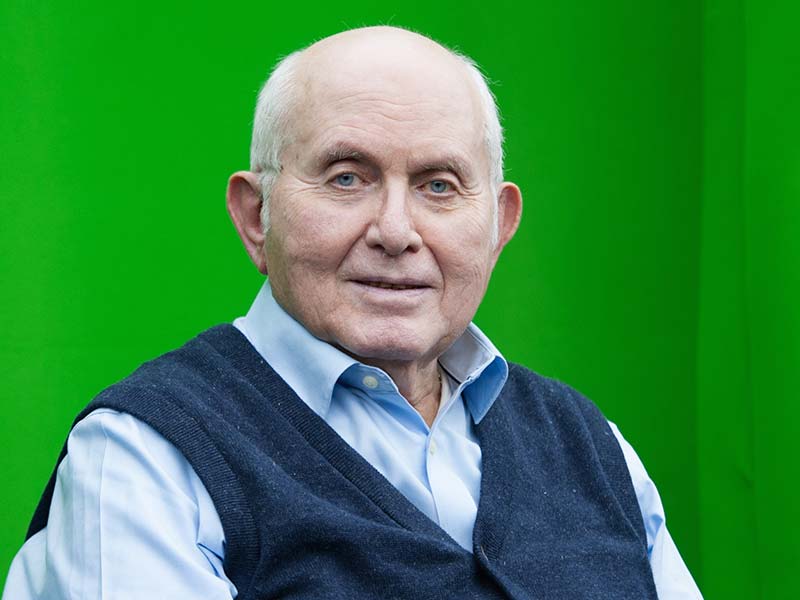Friend and Educator Pinchas Gutter Turns 90

Our longtime friend Pinchas Gutter turns 90 today! The survivor of six German Nazi concentration camps has shared his remarkable story with USC Shoah Foundation in a variety of formats over the years, including as a Dimensions in Testimony interactive biography that has been featured by media outlets including CBS 60 Minutes and the New York Times. Earlier this year Pinchas sat down with us to reflect on contemporary events and his experiences.
In many countries there’s been an upsurge in antisemitic incidents in recent years, and these often involve the use of Swastikas. How does the use of such imagery make you feel?
I find it very, very troubling. When you see these kinds of signs, it forces you to re-live what happened in the past. You even see these things in schools. Here in Toronto, there are cases at schools where children draw swastikas and raise their arms in the Nazi salute. We are talking about kids in the seventh and eighth grade.
People often graffiti horrible things in bathrooms. I always make sure I don’t have to use a public bathroom because if see swastika symbols or terrible things written about Jews, it disgusts me, and I begin to despair for the future.
You were a child during the Holocaust. How did the fact that you were not emotionally mature at the time influence your understanding of what was happening around you?
I wasn't developed. The horrors started for me when I was more or less eight years old. And I spent five years—the most important formative years when I would normally have been starting my learning and experiencing life—being trained by the Holocaust.
How can you explain what is happening to a little boy running around in the Warsaw Ghetto? He is standing in front of a cafe where collaborators, Polish police and Nazis are drinking and dancing. And outside are dead bodies lying in the street and children are crying and nobody's paying any attention. And the little boy sees all this, and his mind is not yet intellectually developed so he can't really understand what’s going on. But he can see it, and, later, he can recall it, but by that stage there's nothing much you can do about it. You come to terms with it. You deal with it. The emotions and feelings that you express are ones that you learned and that your brain absorbed in the five years that you were under the yoke of the Nazis.
Do you experience happiness in a way that is different from others because of what happened to you?
That's a very difficult question to answer. For instance, I love my wife. We've been married something like sixty-five years, since 1957. We do all the things that couples do—we have good times and difficult times—but we love each other. And so that is regarded as being happy. But if you went through the kind of trauma I experienced, you can't fully experience the same happiness as others. I mean, I'm happy when my children are happy, and I know they experience happiness. And it makes me happy that they are happy. But the fact is that, to a certain extent, the emotions I experience are not exactly the same as those experienced by others. But that doesn't mean that I am pessimistic. I've never been pessimistic because I've seen that even amongst the most unbelievable evil, there is goodness.
Like this article? Get our e-newsletter.
Be the first to learn about new articles and personal stories like the one you've just read.